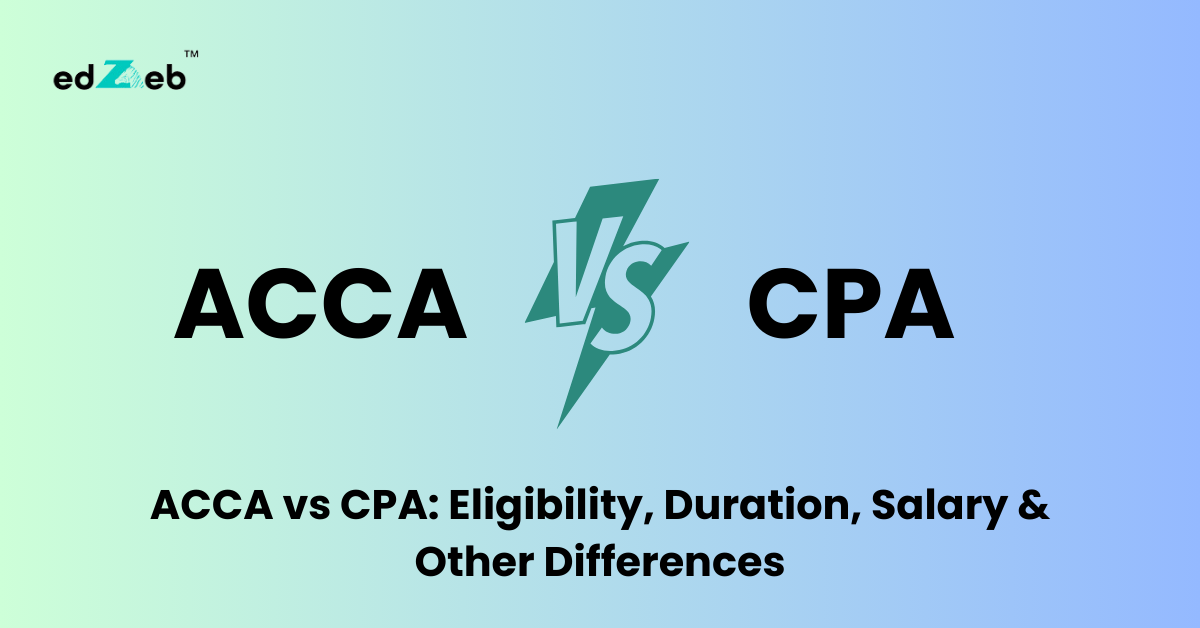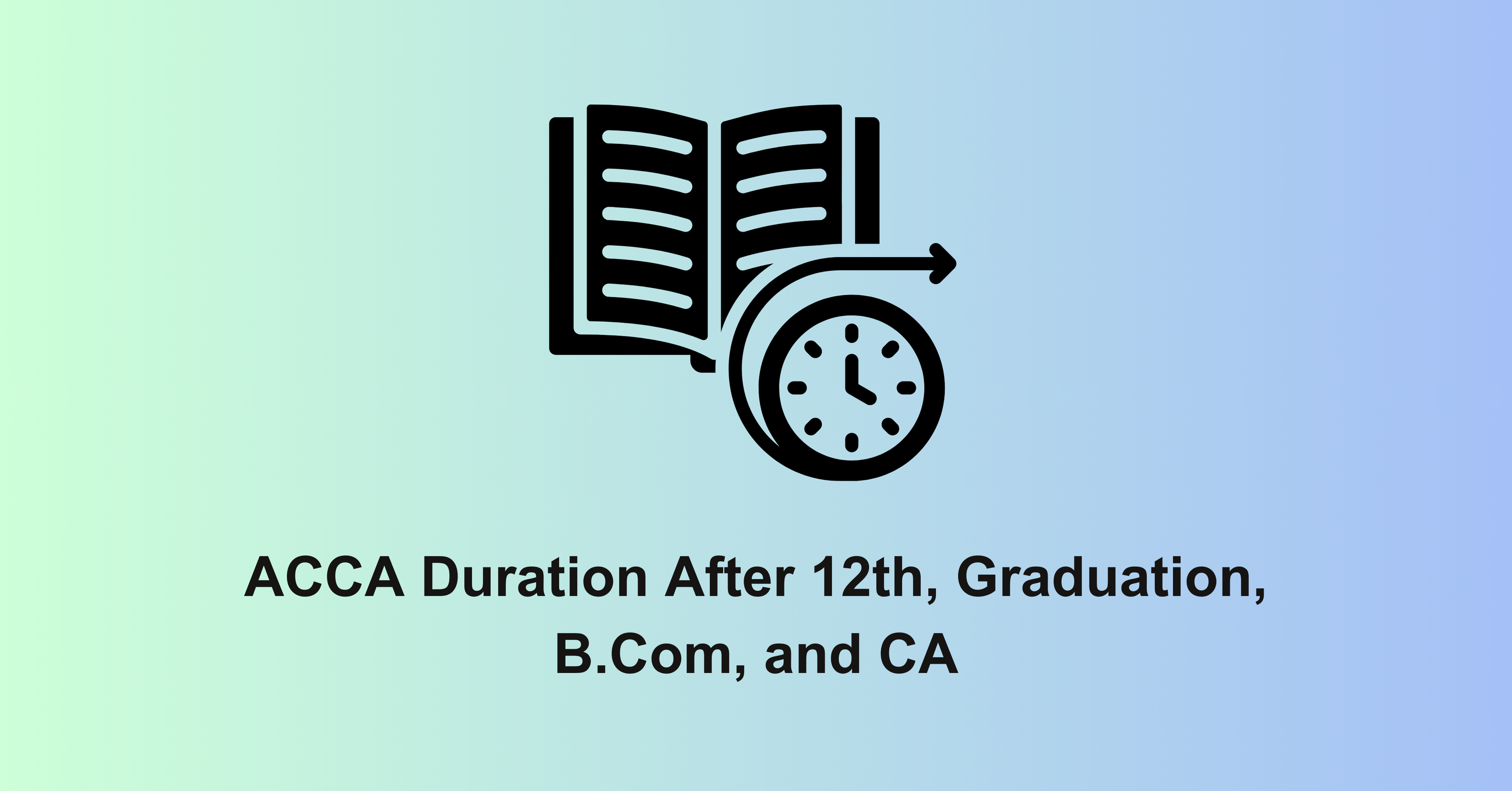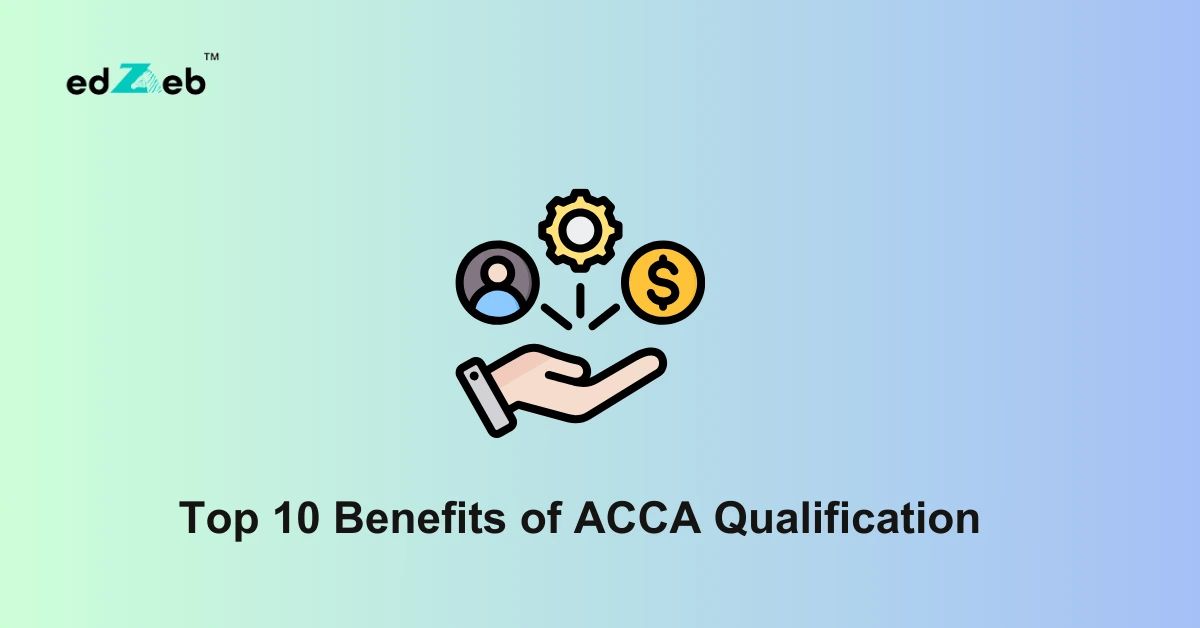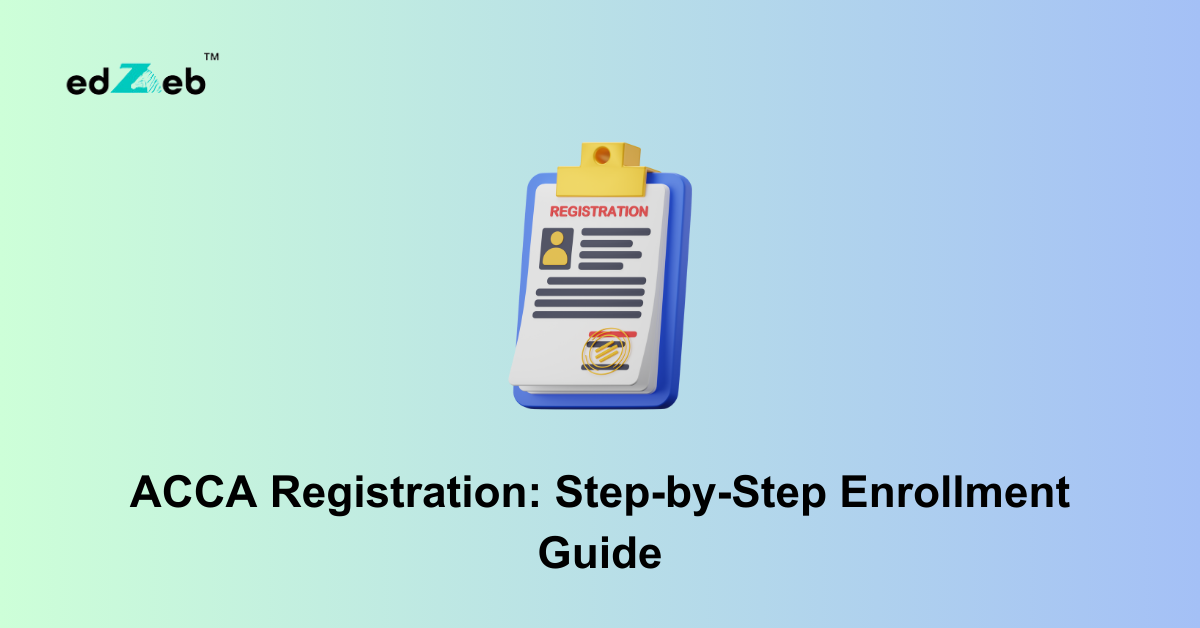
Do you also find it challenging to find the right accounting certification like other finance professionals? Those who want to make a career in the accounting domain, generally get confused between ACCA vs CPA, the two prominent certifications. In this article, let us see how the globally recognized ACCA matches up against the US-recognized CPA to find out the best path to align your career aspirations.
Table of Contents:
ACCA vs CPA: An Overview
ACCA Association of Chartered Certified Accountants offers Chartered Certified Accountant qualification after passing all three ACCA exam levels: Applied Knowledge Level, Applied Skills Level, and Strategic Professional Level. ACCA also exempts you from some ACCA exams to avoid repetition of studying the same subjects that you have already studied in your previous qualifications.
On the other hand, CPA Certified Public Accountant is a certification offered by the American Institute of Certified Public Accountants after passing all four CPA exam papers: Auditing and Attestation (AUD), Financial Accounting and Reporting (FAR), Regulation (REG), and Business Environment and Concepts (BEC).
Both these accountancy credentials backed by seamless CPA and ACCA registration, open doors to diverse opportunities across industries, including hospitality and healthcare to retail and banking, and from the Big 4 to other renowned public and private organizations.
What is ACCA?
The ACCA is a globally recognized qualification that offers a comprehensive curriculum for aspiring professionals in accounting, finance, and management. Though often asked, “Is ACCA Difficult?” The program’s design ensures candidates gain skills step-by-step, preparing them for success.
The program is structured into three levels:
Applied Knowledge Level
Business and technology (BT)
Management Accounting (MA)
Financial Accounting (FA)
Applied Skills Level
Corporate and Business Law (LW)
Financial Management (FM)
Financial Reporting (FR)
Performance Management (PM)
Taxation (TX)
Audit and Assurance (AA)
Strategic Professional Level
Essentials
Strategic Business Leader (SBL)
Strategic Business Reporting (SBR)
Optional (Choose any two)
Advanced Financial Management (AFM)
Advanced Performance Management (APM)
Advanced Taxation (ATX)
Advanced Audit and Assurance (AAA)
The ACCA exams across all levels are computer-based. The ACCA program is designed to be flexible. Students are allowed to take exams in four sittings throughout the year and progress at their own pace. Furthermore, ACCA exemptions allow candidates with prior qualifications to bypass specific papers, making it easier to fast-track their journey. ACCA certification is a top choice for those aiming to achieve excellence in the global accounting field.
What is CPA?
The Certified Public Accountant (CPA) is a highly regarded accounting qualification in the United States. It is popularly known for its excellence in accounting expertise and ethical practice. The CPA exam is designed to test the knowledge and skills of candidates in real-world accounting scenarios.
The exam consists of four sections:
Auditing and Attestation
In the AUD module, the candidate’s knowledge of the auditing process, including ethics, professional responsibilities, and general principles of auditing is assessed.
Business Environment and Concepts
The BEC focuses on business concepts and the importance of a CPA’s role in business.
Financial Accounting and Reporting
It tests knowledge in financial accounting and reporting, covering Generally Accepted Accounting Principles (GAAP)
Regulation
The REG section covers federal taxation, ethics, professional responsibilities, and business law.
Each exam section is four hours long and consists of multiple-choice questions and task-based simulations.
Breaking Down the ACCA and CPA Difference
The ACCA and CPA difference lie mainly in their scope, geographical recognition, and focus areas. The table below briefly showcases the CPA ACCA difference.
Feature | CPA (Certified Public Accountant) | ACCA (Association of Chartered Certified Accountants) |
| Global Recognition | United States | Yes, 180+ countries |
| Regulating Body | American Institute of CPAs (AICPA) | ACCA Global |
| Focus | auditing, and taxation | accounting, finance, and business management. |
| Accounting Standards | Generally Accepted Accounting Principles (GAAP). | International Financial Reporting Standards (IFRS). |
| Exam Structure | Single-tiered exams | Multi-tiered exams |
| Career Paths | Primarily focused on public accounting, but can also lead to roles in industry, government, and academia. | Diverse career opportunities, including finance, management, and consulting. |
| Time Commitment | 1-3 years, depending on individual circumstances. | Typically takes 3-5 years to complete. |
| Work Experience | 1-2 years of relevant work experience depending on the state | Requirement 3 years of relevant work experience |
| Licensing | Requires state-specific licensing to practice as a CPA | No need for additional licensing |
| Exemptions | No exemptions granted | Exemptions based on prior qualification & experience |
| Recognition | Only after clearing all 4 papers | Diploma and Advanced Diploma after KL and SL |
Eligibility Criteria
ACCA Eligibility
The ACCA course is open to candidates with 10th or 12th pass out in any stream. ACCA eligibility also includes postgraduates, CAs, CMAs, and CA Intermediates, as well as those from any academic background aspiring to pursue a finance or accounting career.
CPA Eligibility
The CPA exam basic requirements vary across US states but typically it requires a bachelor’s degree in accounting, finance, or business administration. The CPA eligibility for exams is to secure 120 credits, with one year of Indian university education earning 30 credits.
Moreover, suppose you want to practice as a CPA. In that case, a license is needed for which you should have 150 credits, two years of work experience, and pass the 4 Es (Examinations, Education, Experience, Ethics) examination. The license must be earned within three years of clearing all exams.
Examination Pattern
ACCA
The exam pattern for the Applied Knowledge Level includes three 100% MCQ-based exams. While, in the Applied Skills Level, the Corporate and Business Law exam is 100% objective type questions. The other five exams consist of 60% objective-type questions and 40% subjective questions. The last Strategic Professional Level exam consists of four mandatory and two optional 100% subjective exams.
CPA
All 4 examinations of the CPA curriculum are computer-based and last for 4 hours mainly focusing on US Taxation and US Generally Accepted Accounting Principles (GAAP).
Course Duration
ACCA Course Duration
The ACCA course duration is 2 to 3 years to complete. Students with a varied number of ACCA paper exemptions have a high chance of completing it in less time.
CPA Course Duration
It typically takes 12-18 months to clear all exams of the CPA program. There is no exact CPA course duration set by the organization overseeing the conduct but yes the course may take up to 2 years on an average to complete.
Examination Dates
ACCA Exam Dates
On-demand ACCA Level 1, Applied Knowledge Level computer-based examinations (CBEs) can be taken at any time of the year. Applied Skills and Strategic Professional Levels are held in March, June, September, and December. However, you need to book exams before the deadline for each exam session.
CPA Exam Dates
You can take the US CPA examinations on demand in the months of January, February, April, May, July, August, October, and November.
Governing Body
ACCA Governing Body
The ACCA exam is conducted by the global professional accounting body, the Association of Chartered Certified Accountants.
CPA Governing Body
The American Association of Public Accountants (AICPA), established in 1887, is a key player in formulating rules and setting standards.
ACCA vs CPA Difficulty Level
ACCA Difficulty Level
ACCA (Association of Chartered Certified Accountants) is indeed a challenging qualification due to the breadth of subjects covered, leading many to wonder, Is ACCA difficult?. ACCA Subjects include taxation, auditing, costing, budgeting, financial reporting, financial management, business law, professional ethics, accounting principles, finance, taxation, and business management. Whether it’s suitable for average students depends on various factors. ACCA exams require a strong understanding of these areas with an ability to apply knowledge in practical scenarios.
CPA Difficulty Level
The CPA exam is a challenging and comprehensive account and finance exam, requiring strong analytical and application skills. It emphasizes US GAAP and GAAS, making it difficult for non-accounting individuals to pass. However, your consistent study and effort can help you pass the CPA exam, despite its complexity and potential for negative rank and pass percentages.
Global Recognition
ACCA
ACCA is globally recognized in more than 180 countries.
CPA
It is especially recognized in the United States of America.
ACCA and CPA Difference in Job Profiles
ACCA Careers
ACCA professionals can work as management accountants, auditors, accountants, management consultants, and financial planners. The scope of ACCA extends across various industries, thanks to its comprehensive curriculum that covers Accounting, Financial Reporting, Auditing, Taxation, Business Finance, and Financial Management, thus opening ACCA career opportunities in these job profiles.
CPA Careers
CPAs specialize in and find several job roles in audit, assurance, tax advisory, financial management, risk management, forensic accounting, internal audit, consulting, public accounting, budget analysis, tax examiner, and business systems analysis.
Gaining information regarding the work profiles of both professionals also generates curiosity to know the ACCA vs CPA salary so let us discuss that in brief as well.
ACCA vs CPA Salary
ACCA Salary
The annual starting salary package for ACCA professionals ranges from 10 to 15 Lacs approximately. The ACCA Salary in India can rise significantly, reaching up to half a crore with expertise and experience gained over years, especially the executive-level positions.
CPA Salary
The CPA professionals earn around 6 Lacs of the package which obviously varies depending from industry to industry but the seniors earn approximately 25 to 30 Lacs.
Top Hiring Firms for ACCA and CPA

ACCA
The professionals who have ACCA certification are hired by the Big 4 accounting firms which include EY, PwC, Deloitte, and KPMG. In India, MNCs like Tata Group, Grant Thornton, Embassy Group, and Pepsico hire them. Other companies hiring ACCA professionals are Accenture, HSBC, Shalimar Paints, Amazon, and Shell.
CPA
Many top companies hire CPA professionals like the Big 4 accounting firms—Deloitte, PwC, EY, and KPMG. Multinational corporations like Amazon, Google, Microsoft, and Apple also seek CPAs for financial management roles. The banks, consulting firms, government entities as well as nonprofits, healthcare organizations, and educational institutions, also rely on CPAs for their financial expertise.
So, now that you know almost everything about both the qualifications, ACCA vs CPA which is easier? Or you should ask yourself CPA vs ACCA which is better for you? If you still are not able to decide whether ACCA or CPA, then obviously, at last, you have the option to do CPA after ACCA or vice versa.
CPA or ACCA which is better?
CPA-designated professionals are looking to excel in the US accounting landscape. They work in public accounting, corporate finance, and government roles. CPAs have to complete 40-80 hours of Continuing Professional Education (CPE) every year to renew their license, with the exact number of hours varying by state.
However, ACCA professionals work internationally in corporate governance, taxation, management accounting, and financial accounting roles. ACCA members have to complete 40 units of Continuing Professional Development (CPD) each year.
Therefore, deciding on CPA or ACCA which is better, depends upon your career goals, geographic preferences, and interests in specific areas of accounting and finance. Both certifications signal accounting excellence to employers.
Conclusion
The choice between ACCA and CPA greatly depends upon individual career goals, geographical preference, and the domain of expertise you want to continue with. If you are wondering, ACCA vs CPA: which is easier? or CPA or ACCA: which is better? Consider that ACCA is globally recognized with a broader curriculum whereas CPA focuses on U.S accounting standards which makes it an ideal choice for those who want to make their career in the United States of America. Both these qualifications provide excellent job opportunities with competitive salaries whether in multinational corporations, consulting firms, or government bodies. Ultimately, if you are still unsure, you have the flexibility to pursue CPA after ACCA, or vice versa, depending on what aligns best with your career aspirations, location preferences, and the industry you want to make your career in.
FAQs
Is ACCA Harder than CPA?
Both ACCA and CPA are equally challenging and require a significant amount of hard work and diligence to pass the exams. The CPA exam has four sections and a time limit of 18 months, while the ACCA exam has up to 13 papers. Candidates must meet specific education and experience requirements varying by state. If we consider that the average pass rate for the CPA is 40-50%, while the ACCA is around 55%. Some argue that the CPA exam is more difficult due to its complex pattern and bookish approach, while others find the ACCA exam less time-consuming.
What has Better Scope ACCA or CPA?
See, if you want to make your career with global mobility and diverse opportunities then ACCA is your gateway to an international accounting career. However, if you aim to excel in the US market with a specialization in US GAAP and GAAS, then it is better to go with CPA.
What are my career opportunities after ACCA?
ACCA professionals have a wide variety of job opportunities across the globe as the ACCA curriculum also covers the aspects of Chartered accountant, you can work in accounting, financial reporting, auditing, taxation, business finance, and financial management profiles apart from just being an accountant, a management consultant, or a financial planner.
Can I Do CPA After ACCA?
Yes, it is possible to do CPA (Certified Public Accountant) after ACCA (Association of Chartered Certified Accountants) because having both can help you work in a variety of areas, including assurance services, forensic accounting, tax, financial planning, internal and external auditing, and international accounting.
CPA vs ACCA which is better?
The Certified Public Accountant (CPA) and the Association of Chartered Certified Accountants (ACCA) are prestigious accounting certifications that can lead to rewarding careers. The choice depends on career goals, geographic preferences, and interests. ACCA has a three-level exam structure, while CPA students and professionals must complete 40-80 hours of CPE annually. So, it is an individual who can decide on CPA vs ACCA which is better for them to pursue.









